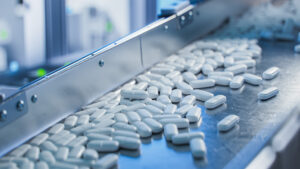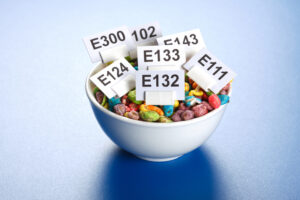What are Extremely Processed Meals? Can dietary supplements be Extremely Processed too? Healthista speaks to the consultants
Extremely processed dwelling is a brand new lifestyle in Britain with 8 out of 10 folks saying their weight-reduction plan is made up of extremely processed meals (UPFs), a brand new survey of over 2,000 folks by moral model Viridian Diet has discovered.
UPFs are merchandise fastidiously crafted by the meals trade for optimum comfort. Consider on a regular basis objects like breakfast cereals, business bread, snacks, and newer traits like vegan comfort meals.
These meals prioritise ease – they’re fast to purchase, cook dinner, or devour. They might are available plastic trays, tubs, pouches, packets, or cardboard containers.
worryingly 3 out of 5 can’t establish a UPF from its label
The analysis additionally highlighted the truth that three-quarters of individuals suppose they devour lower than they do and that worryingly 3 out of 5 can’t establish a UPF from its label.
Over half the British weight-reduction plan is made up of UPFs, in line with a report within the British Medical Journal. Fuelling this can be a big hole in data.
Actually, over half of the two,000 folks surveyed by Viridian Diet said they’d no concept that on a regular basis meals equivalent to ham, bread, fruit drinks and salad dressings are all extremely processed.
There may be much more confusion in relation to meals positioned as ‘wholesome’ – 75 p.c of respondents didn’t understand UPFs like fruit-flavoured yoghurts and lots of extremely processed lunch choices as being extremely processed.

Are dietary supplements Extremely Processed too?
In addition to being unclear concerning the substances in meals, there may be much more confusion about what’s in our dietary supplements.
Certainly, 20 million folks within the UK take dietary supplements each day they usually may also help assist dietary gaps in folks’s extremely processed diets.
But, shockingly, nearly all of commercially made dietary supplements comprise preservatives, glues, binders, fillers and different substances of no use to the physique – often known as excipients. These add to folks’s extremely processed consumption and over half of these surveyed mentioned they’d no thought what the substances of their dietary supplements had been.
That’s why Viridian Diet have launched a nationwide ‘No Junk Marketing campaign’ accompanied by the expert-led Viridian Dejunk your Life Report 2024 which incorporates detailed recommendation from certified consultants to assist readers make sense of this confusion.
20 million folks within the UK take dietary supplements each day
When requested about key components, as many as 7 in 10 don’t recognise sure substances or know if they’re good or dangerous. The Viridian Dejunk your Life Report comprise particulars on 25 widespread excipients present in dietary supplements.
‘All dietary supplements usually are not created equal’, says Registered Diet Practitioner and Microbiologist Dr Carol Granger.
‘Look on the labels of most dietary supplements and you’ll find a listing of substances you received’t anticipate, from components to binders, lubricants to glues (sure, glues!).
‘It’s essential to know precisely what’s in your dietary supplements as many of those substances don’t have any profit for the physique, however they make manufacturing simpler, so mass manufacturing is faster, cheaper, and simpler.
‘The type of your complement issues too, whether or not it’s a pill, capsule, or powder will have an effect on the way in which your physique will soak up it.
‘Few folks know for instance, that it’s a lot more durable for the physique to soak up substances from tablets than from capsules.
‘Tablets additionally want extra manufacturing and extra substances to make them steady; their manufacturing processing means they normally want chemical compounds, colourants, and different synthetic substances’.
Look on the labels of most dietary supplements and you’ll find a listing of substances you received’t anticipate
One in every of these excipients is titanium dioxide, a generally mined compound that offers tablets and capsules their uniform color. It’s additionally utilized in white paint. Titanium dioxide has been labeled by the World Well being Organisation (WHO) as a doable carcinogen and in January 2022, the EU banned it as a meals additive. But , within the UK, it’s nonetheless present in medicines, dietary supplements and lots of foodstuffs.

‘The European authorities not take into account titanium dioxide a protected meals additive due to its genotoxic impact so ask your self why that is in your ‘wholesome dietary supplements?,’ says Nutritionist Aimee Benbow.
‘Have a look at the labels on the again of your dietary supplements and in case you spot this or any of the substances right here, then suppose twice earlier than making the selection to take it’.
‘Studying the label is one of the simplest ways to grasp what you’re taking and the way wholesome it’s – whether or not that’s a meals or a complement, there will probably be many substances used to change the feel, color, and style, in addition to protect it for longer.
‘Dig deeper and query something you don’t perceive. Impartial well being shops are nice locations to go for well being merchandise and recommendation’.
To seek out out extra about No Junk, or to obtain Dejunk Your Life Report, go to: viridian-nutrition.com/pages/no-junk
Like this text? Signal as much as our e-newsletter to get extra articles like this delivered straight to your inbox.